Hispanic Heritage Month
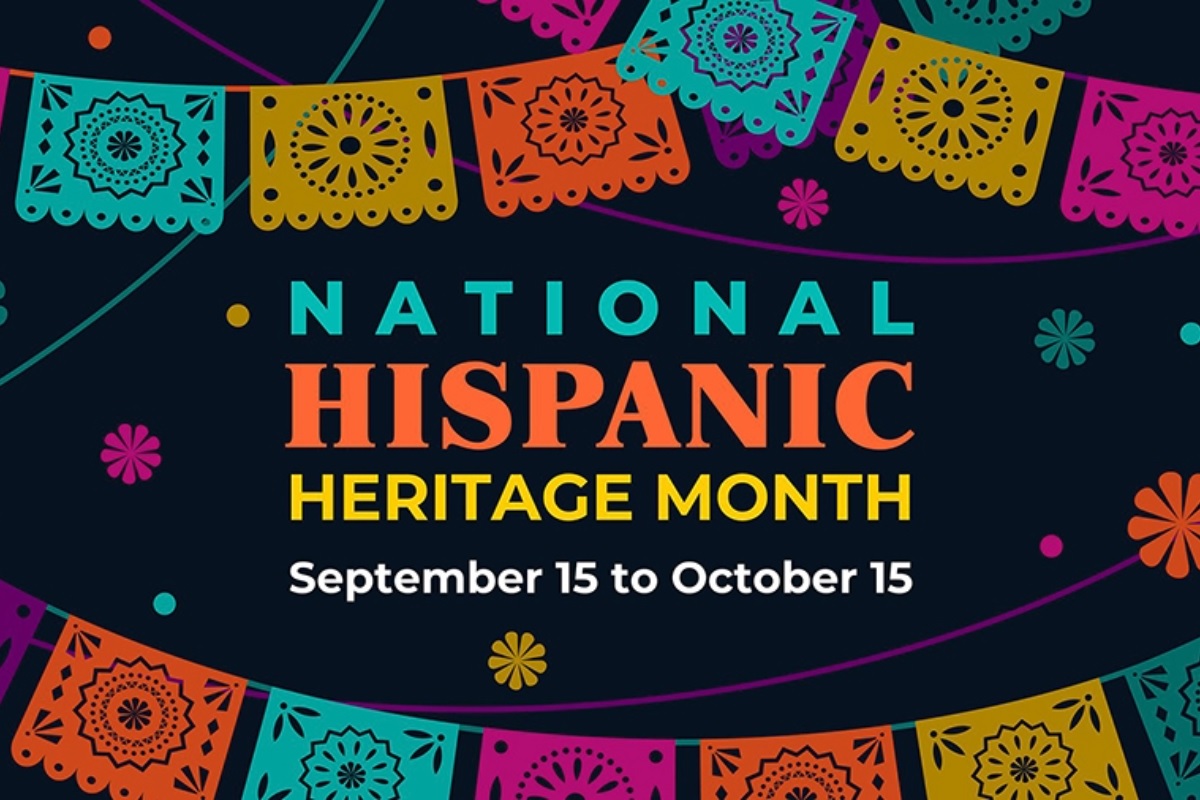
As a health sciences university, we have a unique obligation to learn and appreciate different cultures. Each year from September 15th to October 15th, we are given the opportunity to learn about and honor the invaluable role that Hispanic and Latinx people have played in shaping the health care industry.
Hispanic culture is as vast and colorful as the people who embody it. They are known for their strong family ties, hard work ethic and unwavering sense of community. These values have been carried over to the health care industry, where Hispanic and Latino-American professionals play a critical role in bridging the cultural gap between patients and their health care providers.
Hispanic and Latino-American doctors, nurses, researchers and public health professionals have made groundbreaking contributions that have revolutionized healthcare. This month, we invite you to take note of the following significant contributions to health care by Hispanic and Latino American health care professionals:
- Dr. Luis Walter Alvarez, a physicist, was awarded the Nobel Prize in Physics in 1968 for his discovery of resonance states in particle physics using the hydrogen bubble chamber. He also helped develop the medical linear accelerator. This technology is still used today in radiation therapy to treat cancer patients.
- Dr. Juan Carlos Finlay y de Barrés was the first to theorize, in 1881, that a mosquito was a carrier, now known as a disease vector, of the organism causing yellow fever.
- Dr. Antonia Novello became the first woman and the first Hispanic to serve as surgeon general of the United States (1990–1993). · Dr. Severo Ochoa was the first Hispanic American to win the Nobel Prize in physiology or medicine. His discovery of an enzyme that can synthesize ribonucleic acid was a vital advance in the breaking of the human genetic code.
- Dr. Richard Carmona served as the 17th Surgeon General of the United States and released a landmark Surgeon General's report on the health effects of secondhand smoke.
- Dr. Ana Maria Cuervo was researcher who has made major contributions to understanding the cellular mechanisms behind neurodegenerative diseases like Alzheimer's and Parkinson's.
- Dr. Gloria Ramirez-Gonzalez is recognized for her contribution to nursing research that supports patients living with chronic illness.
- Dr. Ana Núñez, a physician and professor of family medicine, has long been an advocate for the importance of cultural competency in the medical field.
- Dr. Luis H. Zayas has dedicated his life to raising awareness about Latino youth suicide, and advocating for mental health resources for vulnerable populations.
- Dr. Serena Auñón-Chancellor – was the first Hispanic physician to travel to space. She spent six months in 2018 conducting research aboard the International Space Station (ISS)
From research to advocacy to leadership, Hispanic and Latino Americans have played a critical role in advancing medicine and ensuring better health care access for all. Their contributions serve as an inspiration to us all, and remind us of the importance of diversity in all areas of life – including health care. We celebrate this month to recognize their contributions to our national story and history.
Celebrating Hispanic Heritage Month
Check out these online resources hosted by federal entities that will broaden your knowledge of Latinx heritage.
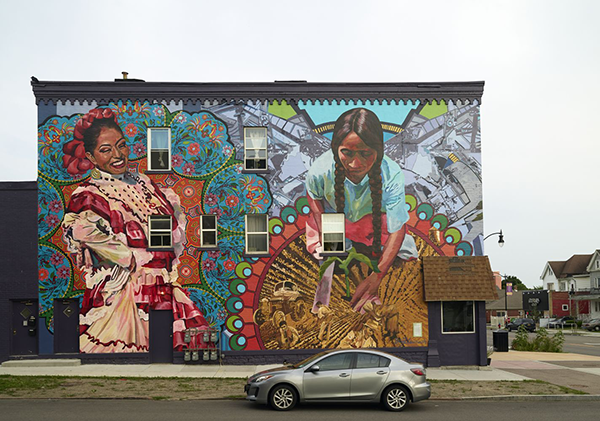 National Public Radio
National Public Radio
National Public Radio compiled a special series for Hispanic Heritage Month and celebrates these communities with stories, podcasts and performances by Latino artists. Visit the website.
Combined Federal Entities
The Library of Congress, National Archives and Records Administration, National Endowment for the Humanities, National Gallery of Art, National Park Service, Smithsonian Institution and United States Holocaust Memorial Museum join in paying tribute to the generations of Hispanic Americans who have positively influenced and enriched our nation and society. Visit the website.
National Park Service
More than 500 years of Hispanic and Latino history and heritage can be found in America's national parks or shared through National Park Service programs and partners in communities across the country. Watch the outstanding video put together by Department of the Interior employees. Visit the NPS Hispanic Heritage Month website to learn history, identify places to visit and browse resources for educators.
Library of Congress Blog
Check out the photoblog at the Library of Congress: Celebrating Hispanic Heritage in Murals. Across America, Hispanic heritage is celebrated with mural art in almost every locale.
Here are some more ways you can celebrate:
· Support Latinx/Hispanic brands and businesses
· Learn about Hispanic and Latinx history
· Read books by Hispanic and Latinx authors
· Attend local events that celebrate Hispanic Heritage Month in your community
Joplin:
Carthage Hispanic Heritage Celebration
Neosho Hispanic Heritage Celebration
Kansas City:
George Cadava, Director of the Latina and Latino Studies program at Northwestern University, said terms to describe Latin Americans in the U.S. have constantly been evolving over the course of history. "Latinos" gained popularity as a rejection of the word "Hispanic," which many argued was imposed by the government.
“Latinx is an even further evolution that was meant to be inclusive of people who are queer or lesbian or gay or transgender,” said Cadava. “In some cases, it was a rejection of binary gender politics.”
Source: USA Today, June 2019.
George Cadava, Director of the Latina and Latino Studies program at Northwestern University, said terms to describe Latin Americans in the U.S. have constantly been evolving over the course of history. "Latinos" gained popularity as a rejection of the word "Hispanic," which many argued was imposed by the government.
“Latinx is an even further evolution that was meant to be inclusive of people who are queer or lesbian or gay or transgender,” said Cadava. “In some cases, it was a rejection of binary gender politics.”
Source: USA Today, June 2019.
Is it Hispanic or Latinx?
Latinx Heritage at KCU
Marcelino Oliva, DO
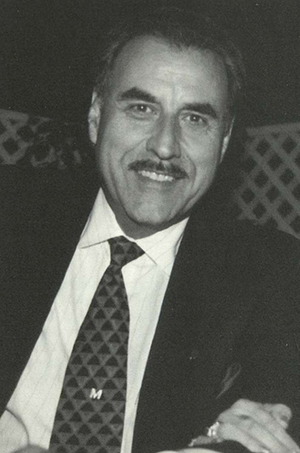 Dr. Marcelino Oliva was a KCU alum who graduated in 1964. A native of Cuba, he came from a family with several physicians and emigrated to the United States at 10 years of age. After graduation from KCU, Dr. Oliva relocated to Dade City, Florida, where he practiced medicine in the rural areas. He owned a nine-bed hospital and provided a wide array of services to patients. He continued to give back to that community, and far beyond.
Dr. Marcelino Oliva was a KCU alum who graduated in 1964. A native of Cuba, he came from a family with several physicians and emigrated to the United States at 10 years of age. After graduation from KCU, Dr. Oliva relocated to Dade City, Florida, where he practiced medicine in the rural areas. He owned a nine-bed hospital and provided a wide array of services to patients. He continued to give back to that community, and far beyond.
Dr. Oliva was extremely active in the Florida Osteopathic Medicine Association over several decades. In 1978, he earned FOMA's highest award, the Distinguished Service Award. In 1990, he received the FOMA Physician of the Year Award and in 1999 received the FOMA Lifetime Achievement Award.
Dr. Oliva was elected President of the AOA in 1988, and fought for DOs to have practice rights in Florida. He was the first minority elected President of the AOA.
Among his many accomplishments, Dr. Oliva served on numerous state boards and councils, he received a KCU Alumnus of the Year Award in 1983 and was a member of the American Osteopathic Association for 47 years. Dr. Oliva worked tirelessly to bring recognition to osteopathic medicine as a premier profession in Florida and throughout the United States. Read Dr. Oliva's obituary.
KCU Students Share Stories of Heritage for Hispanic Heritage Month
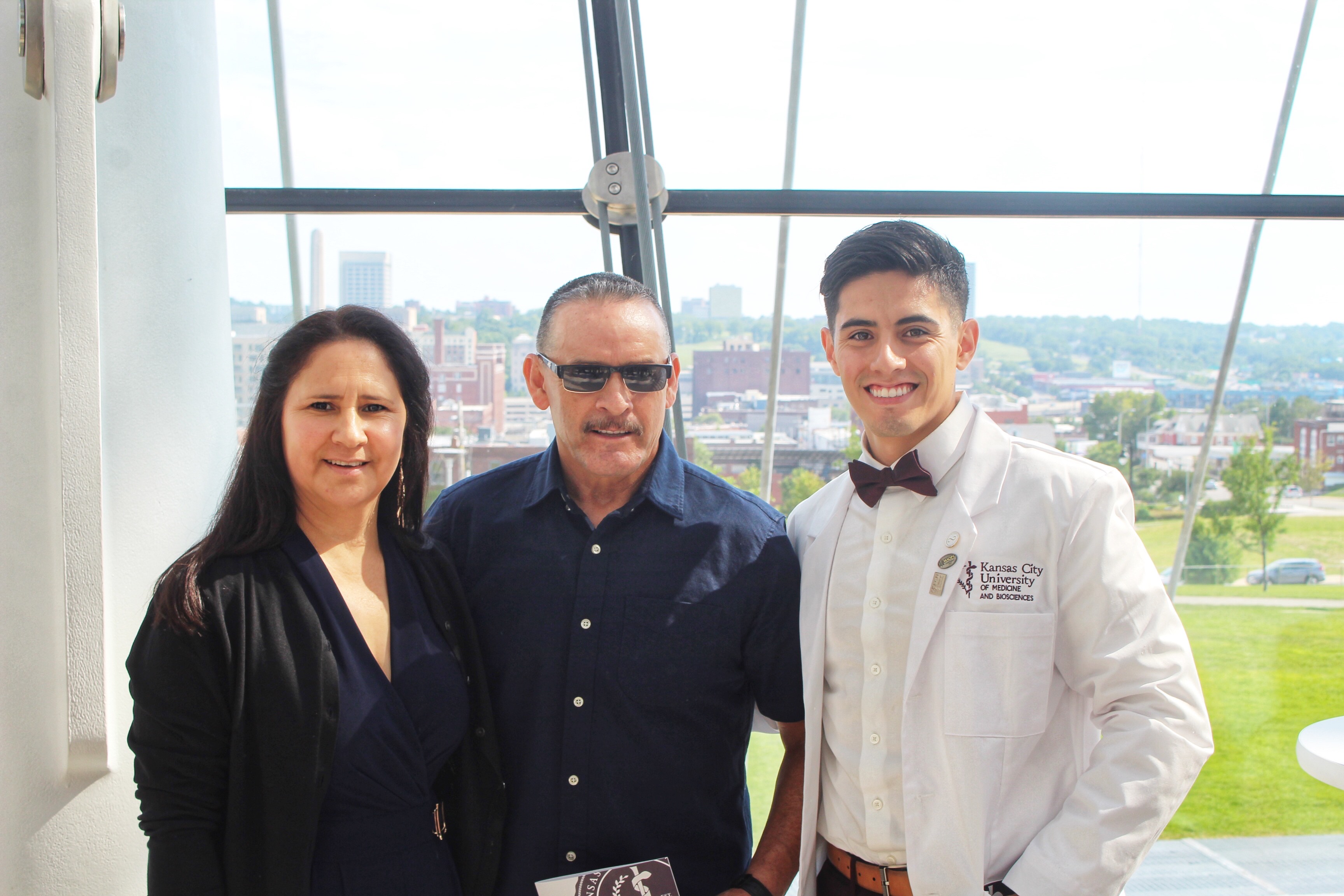 During 2020's National Hispanic Heritage Month, KCU's Medical Spanish Club and Student Government Association collaborate to recognize the contributions and influence that Hispanic Americans have made to American society. KCU students share how their heritage has influenced their call to medicine and what it means to advocate for the Latinx community. Read the blog.
During 2020's National Hispanic Heritage Month, KCU's Medical Spanish Club and Student Government Association collaborate to recognize the contributions and influence that Hispanic Americans have made to American society. KCU students share how their heritage has influenced their call to medicine and what it means to advocate for the Latinx community. Read the blog.
Latinx History-Makers in Medicine and the Sciences
- Celebrating 10 Hispanic pioneers in medicine, Association of American Medical Colleges
- 23 inspiring stories of Hispanic health professionals, Univision News
- Hispanic Doctors Making History, Doctorly.org
- 10 Game-Changing Hispanic Scientists You Didn’t Learn About In School, MentalFloss.com
- 5 Scientists in Latino History Who Changed the World, HuffPost.com
StoryCorps
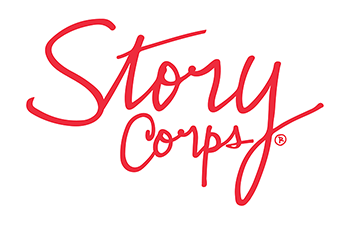 StoryCorps reminds the nation that every story matters and every voice counts. Since 2003, StoryCorps has given a quarter of a million Americans the chance to record interviews about their lives, to pass wisdom from one generation to the next, and to leave a legacy for the future. It is the largest single collection of human voices ever gathered. These powerful stories illustrate our shared humanity and show how much more we share in common than divides us.
StoryCorps reminds the nation that every story matters and every voice counts. Since 2003, StoryCorps has given a quarter of a million Americans the chance to record interviews about their lives, to pass wisdom from one generation to the next, and to leave a legacy for the future. It is the largest single collection of human voices ever gathered. These powerful stories illustrate our shared humanity and show how much more we share in common than divides us.
Record your own and your family's stories for Hispanic Heritage Month. StoryCorps is proud to partner with AARP on their Vivan Las Voces project to record the voices and stories of the Latinx community.